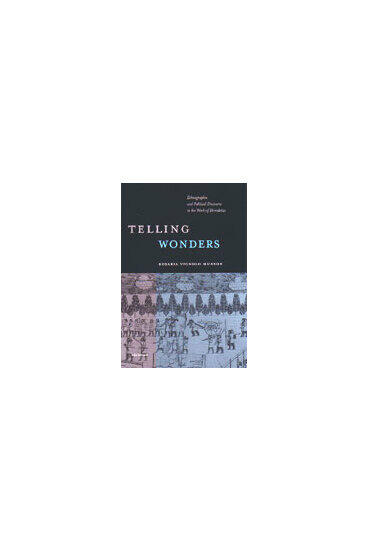Telling Wonders
Ethnographic and Political Discourse in the Work of Herodotus
A sharp analysis of how Herodotus' narrative participates in the rhetoric of shaping public attitudes about the present
Description
As he explores the causes of the East-West conflict from its most remote antecedents, Herodotus includes conflicting traditions about different historical periods as well as apparently tangential descriptions of the customs of faraway peoples. What was his aim in combining such diverse material? Rosaria Vignolo Munson argues that Herodotus' aim was two-fold: to use historical narrative to illuminate the present and to describe barbarian customs so that the Greeks might understand themselves.
Herodotus assumes the role of advisor to his audience, acting as a master of metaphor and oracular speech and as an intellectual fully aware of new philosophical and political trends. By comparing, interpreting, and evaluating facts through time and space or simply by pointing them out as objects of "wonder," he teaches that correct political action is linked to an appropriate approach to foreigners and additional "others." Munson relies on traditional scholarship and modern studies in narratology and related critical fields to distinguish between narrative and metanarrative, providing a framework for analyzing the construction of Herodotus' discourse and his presentation of himself through it.
Munson's work will be useful to classicists and ancient historians and will also engage anthropologists interested in cultural interaction and notions of ethnicity and literary critics interested in narrative constructions.
Rosaria Vignolo Munson is Associate Professor of Classics, Swarthmore College.
Reviews
". . . a rich and nuanced reading of the Histories that offers a careful unpacking of the subtle and often unexpected ways in which Herodotus' ethnographic descriptions convey meaning."
- Rachel Friedman, Vassar College
---Phoenix
". . . a strong, defensible, new reading of Herodotus, one for our times and its readers."
- Robert L. Fowler, Univ of Bistol
---Robert L. Fowler, University of Bristol
". . . a must for every classicist's and ancient historian's bookshelf. [Munson] establishes, once and for all, Herodotus as a directed, focused, and purposeful writer . . . . and she masterfully demonstrates how Herodotus as history, or arbitrator, also presents judgments, reflections, and recommendations about current events and current perceptions to his audience through ethnographic examples."
- Stephanie Larson
---Bryn Mawr Classical Review
"...exciting, and especially timely . . . .[It] is not easy to find a means equal to writing sensitively about Herodotus and this book does a worthy [job]."
- Eliabeth Irwin
---The Journal of Hellenic Studies

